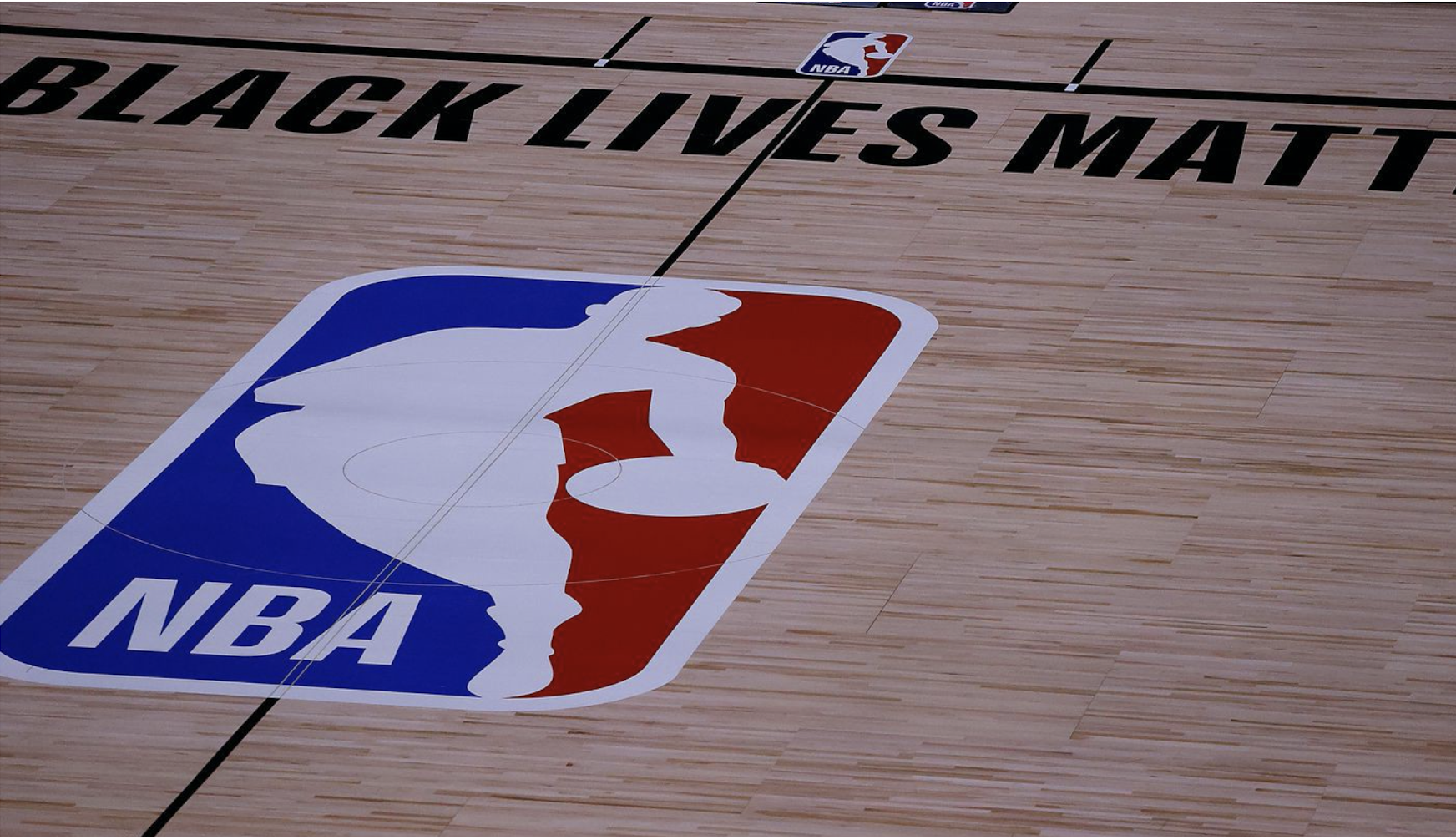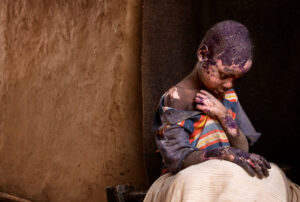The extraordinary sight of NBA players protesting racial injustice by refusing to participate in playoff games last week made me (and others) think about a movie I saw last year. High Flying Bird tells the story of an NBA rookie whose first season is thwarted by the 2011 NBA lockout, and his agent (played by André Holland) who is trying to keep his job, find a way to retain his clients, and also, maybe, break an unjust system.
The story was Holland’s idea; he passed it along to playwright and screenwriter Tarell Alvin McCraney, best known in the movie world for co-writing the Oscar-winning screenplay for Moonlight. (McCraney is also the chair of playwriting at the Yale School of Drama.) Holland also gave McCraney a book that turns up prominently in the film: The Revolt of the Black Athlete, published in 1968 by sociologist Dr. Harry Edwards. A game-changing work of both scholarship and activism, the book is a study of and call for Black athletes to participate in collective action aimed at social change. Among many other accomplishments, Edwards helped engineer the famous Black Power salute that Tommie Smith and John Carlos raised at the 1968 Olympics.
High Flying Bird raises important questions about what Holland’s character calls the “game on top of the game” — the business of pro basketball, in which players, owners, media, and others all play different roles and have different access to resources and power. Directed by Steven Soderbergh, it’s a crackling film that suggests that second-order game could be illusory, if athletes start to work together.
That realization is prompted by the lockout, which was a mini-apocalypse back in 2011, prompted by disputes over the division of revenue between owners and players. The situation the league found itself in 2020 was much stranger, with shortened seasons and reduced revenue thanks to the pandemic, and Black Lives Matter uprisings across the country in reaction to police shootings. So I wanted to ask McCraney what he was thinking about as the events of last week’s walkouts unfolded.
I spoke with him over Zoom about the film’s relationship to our reality, the power that Black professional and college athletes hold and the power that’s still outside their grasp, how social media changes the game, and whether artists have something to learn from the collective action of athletes. This conversation has been edited and condensed for clarity.
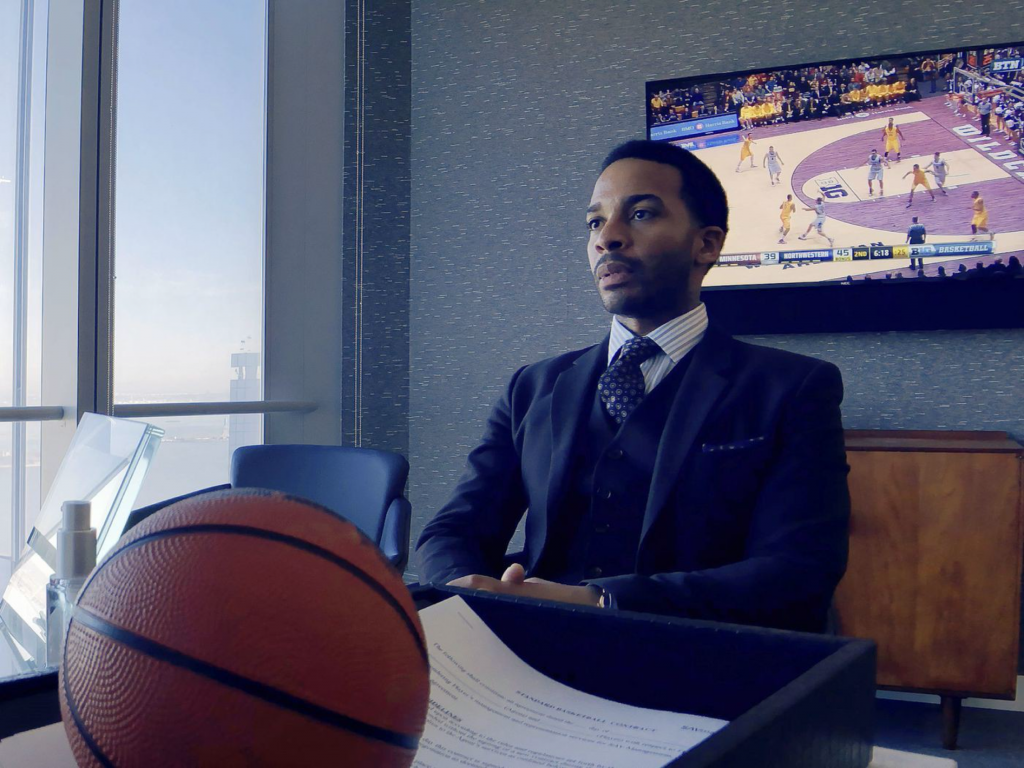
What were you thinking about last week, as you watched the NBA walkouts unfold?
I wondered what it must be like for Dr. [Harry] Edwards, who chronicled this phenomenon amongst Black athletes throughout the history of the United States — I just kept thinking, “I wonder what’s going through his mind.” I know he has a very deep interest in telling stories and points of view, like we did in High Flying Bird, about the collective power of those athletes, and about the social change they can bring, and want to bring.
Then I started wondering what those players are going through. To be in a bubble, in Orlando, not able to move, and then have your hometown going up in flames, or protests happening and you not being able to be there. Even if it’s not your hometown — even if it’s a town that has become your home base because of the team — there’s social unrest happening around people who look like you. As we know, these players experience it all the time, even if they may not report it.
So I was thinking more about what sparked High Flying Bird. These moments, these stories, these collisions with capitalism, racism, the industry.
One thing I hadn’t thought about much until this year is something André Holland’s character says in the first scene of High Flying Bird: that NBA players have a certain amount of power because the league relies on their image to be able to sell sneakers and merch for the “sexiest sport.” I watched The Last Dance in the spring, and showing how much power Michael Jordan had was a big part of the documentary. It was clear that his celebrity and power were very individual. But right now, the collective actions aren’t about the individual at all; they’re about the collective.
I am not a basketball scholar. But one of the reasons the research [for High Flying Bird] came to me easily was that there are a lot of comparable markets [to pro sports]. Freelance writers. The WGA and agency dispute — that was happening at the same time. We were literally looking at looming actor strikes.
Michael Jordan has a great deal to do with this, but the rise of the superstar athlete, especially in the NBA, has created a kind of tiered power system in which you need a star player. You can look at ballet companies the same way: There has to be a prima. There has to be somebody who’s the star that’s going to draw the audience. But you still need the corps, you need the ensemble.
The interesting thing about how that power works is that it’s endemic to the way we run our society. We mete out freedom to a few people, and then everybody else is scrambling for the scraps. But there’s a point where people are like, “Wait a minute, together we all need freedom. Yes, we can talk about different tiers of payment. But we all need human dignity, respect, the freedom to be our full person.”
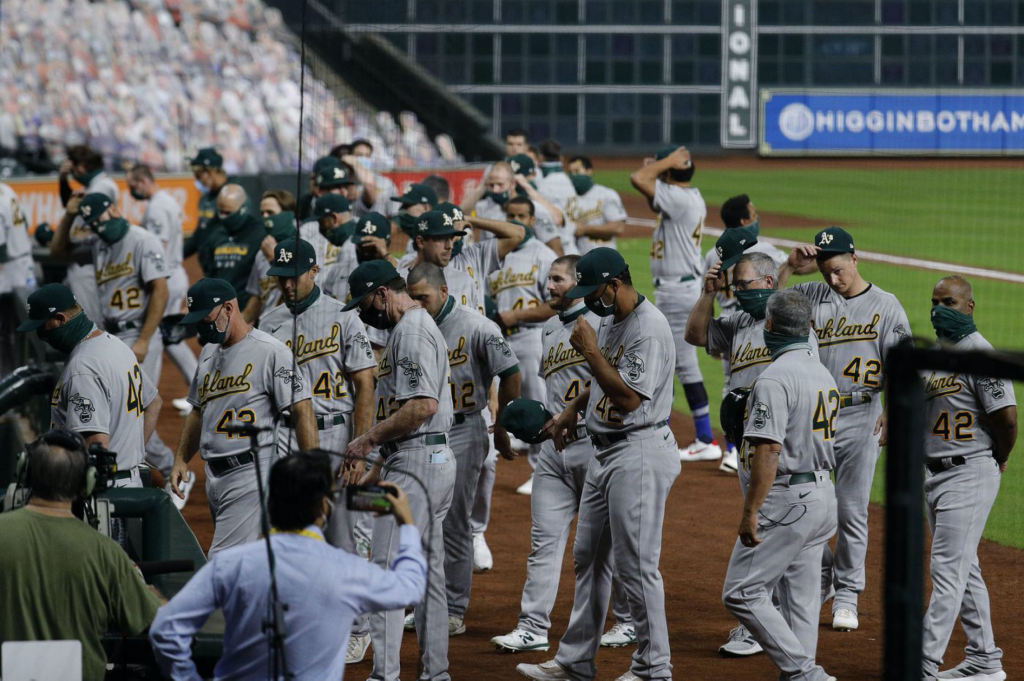
There are moments like now, where everybody’s vying to figure out, “Okay, well what’s the collective gonna do?” There are folks who are going, “We should all just walk away.” And there are people saying, “No, I’ve got to pay my bills.” That’s where the tensions lie. That’s where the system wants you to be. It wants to keep us in a constant state of saying, “Hey, don’t rock the boat here; some of us don’t have the privileges you have.”
It’s always important to remember the way capitalism works in these industries: It wants you to think it supports the individual, but that’s not true. It can’t. It’s not possible. That’s why we call the one percent “the one percent.” If we keep everybody vying to be the one percent, keep everybody pulling to be there, they’re so distracted that nobody’s paying attention to the fact that the 99 percent is being treated like less-than-human beings.
How great would those players be if they were just able to focus on being their best player selves? But they can’t. They absolutely should be doing what they’re doing, which is making the people they work for, and work with, pay attention to the pain and suffering of the communities that they came from and that they are a part of.
One thing that struck me watching everything that’s going on, and then rewatching High Flying Bird, is that our imaginations have been wired so that we often can’t even conceive of what would happen if a group of people who were calling for justice just walked off the job. Or if a large group of people suddenly decided they weren’t going to participate in an unjust system anymore. Or if athletes or artists decided to sidestep an unequal industry rather than work inside it. It’s hard to imagine that as even a possibility.
In the movie, that realization comes because the NBA is literally in the midst of a lockout due to contract disputes, so the system is effectively not even there.
The similarities [between the movie and now] are terrifying, because something larger has stopped what is normal. In our world today, many things could interrupt the cash flow of many industries. We’re all going through them, including the NBA. But they’re trying to continue to march forward in the middle of a pandemic. In the middle of 180,000 deaths, and rising, there is this feeling that we have to keep the tap on.
But that is its weakness. The industry isn’t able to change and move. It doesn’t have flexibility. It has to keep forward momentum. These are moments when we’re trying to tell nature, “Oh, we’ll find a way to do what we need to do,” but things around us really should tell us to stop, to reconfigure. This is a moment to look at how we can make things better, more equitable. It’s a time that we can just stop. But many industries are like, “That’s the opposite of what we can do.” We’re going to hurt ourselves, we’re going to extend ourselves even more, and take away more freedom, and broadcast from people’s homes now if we have to, because we’re not going to stop the flow. We can’t. What will we do?
If you know that the system is vulnerable in that way, then you can really interrupt it, if you go, “Well, you want this to keep going, but what if I said no?” And yes, the collective action could lead to you not being employed anymore. But do you really want to be employed by a system that vulnerable? A system that can’t stop and say, “Hey, we’re running wrong, we need to stop for a second and figure things out.”
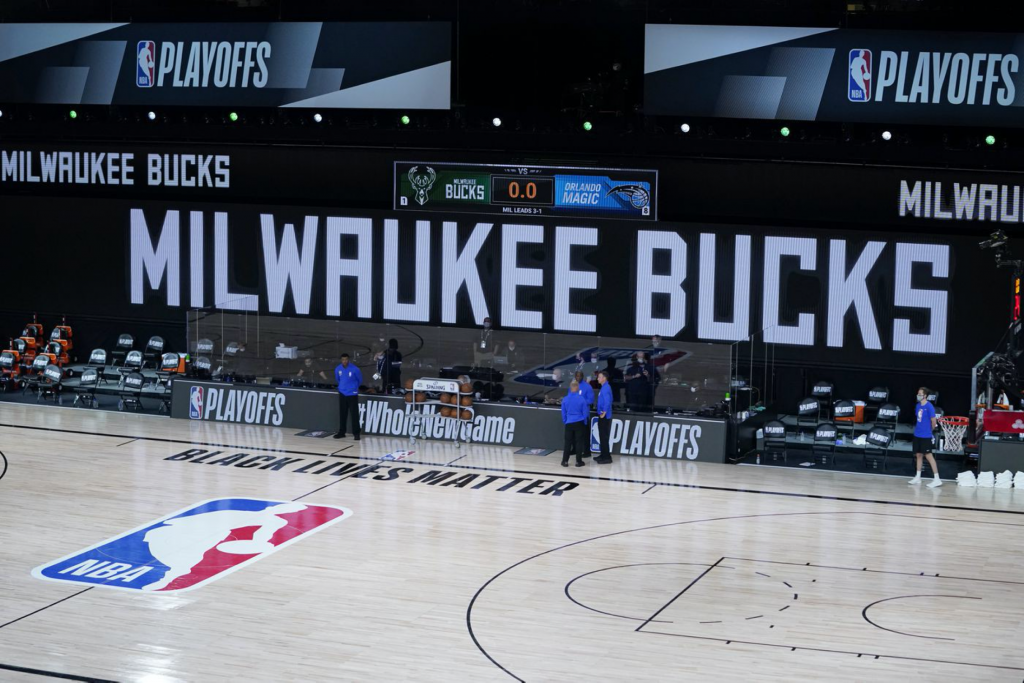
Capitalism is like, “Well, it’s too big to fail.” But every time we get into a “too big to fail” situation, and it does fail, nobody sees the writing on the wall. We could have seen in advance that something was too big, that some small cog would really mess it up, and it would send a lot of people reeling. That we need to do something now. But nobody ever does.
In these moments of collective action, when players in all kinds of sports, even in the MLB, decided to walk off, it looked like solidarity across sports. But I guarantee you there are a lot of people in the background screaming, “We can’t let this go on too long. There’s too much money at stake.” I wonder, though — none of the major leagues can be making much money right now, right? How much must they be making in contrast to what they normally make in order to tell themselves that playing games is the right thing to continue doing? Is it worth it? Those are the questions that keep going through my mind. They’re not operating an ordinary system, so what’s the margin here? What’s making this beneficial? Are you wearing out players just to say you’re doing it?
The situation has made me think a lot about the powers that college athletes wield, both in these times and others, since they’re not even getting paid.
Oh, for sure. They definitely do. There are whole schools that are terrified right now that they won’t be able to operate in general, because their sports teams can’t operate.
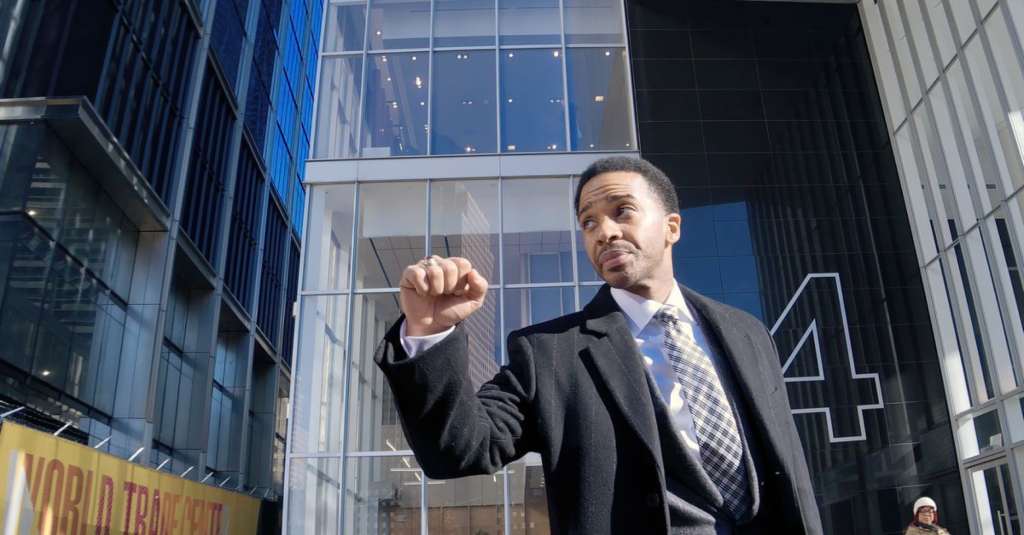
There was this highly recruited student who just went to visit a historically Black college instead of the Top 10 schools, or the Big Three, that people thought he should have been looking at. People were going crazy: “What? He can’t go to that school. If he goes there, then…” You get this nauseous feeling in your stomach, thinking, “Wow, that person is just dollar signs to your institution.” If schools aren’t about higher learning and deepening education, are they really just investment funds, hedge funds masked as universities? I argue about this even with the institution I work for, Yale, all the time. Like, what’s happening here? Where are our values?
I think Dr. Edwards speaks so eloquently about the way in which these young players, especially in college, have more collective freedom than they think. But the game is to make sure that they don’t know that.
Also, there’s a burden on them. There are many players who know they’re bringing home championships, or making sure their team is in the playoffs, and that they’re bringing the stadium money, the money that the teams get from endorsements. The revenue that schools get from athletics — those numbers are terrifying. I don’t know what those schools’ values are, I don’t know what their ethos is. But there’s something really powerful in what’s happening there, in the ways in which these young folks are beginning to think about both their collective action and their actions as individuals. I know Dr. Edwards has lots to say about that.
One big element of High Flying Bird — and also an element of the power that athletes can yield these days — came with the advent of social media, which gave people a new way to own their images. They weren’t as easy to control as they might have been in the past.
The age of information, like all periods in history, has its pluses and minuses, or gifts and curses. The internet, the amount of information that we get, the ability to shift that information and pass it back and forth — there’s never been another time like it. Our brains are so stimulated by that passing of information. And to think that artists, athletes, or anyone creative isn’t going to engage that, with some sort of individualist mindset, is wrong.
As people who are in the entertainment industry, we have been asked to be quieter about our interior feelings about specific issues — understandably so. But right or wrong, [through social media] we get to see people’s innermost thoughts.
It’s kind of interesting that colleges used to be the place where people go and find their voice, whereas a lot of college athletes find that’s where people are asking them to be the most quiet.
For Black people — for Black artists and Black athletes in particular — there is a kind of urge to engage in that way. And they have every right to, and should be able to.
You also get to see people on the same team arguing an issue from polar opposite directions. As we saw in The Last Dance, those arguments used to stay in the locker room or behind the scenes. People would guess about them, and then every now and then, a journalist would find the story and run it in the Chicago Tribune or something. But now, we can see arguments play out over tweets flying back and forth. And I think because we are being allowed into that, it’s giving us more space and time to remember that athletes are people.
You can look at the comments under any [political post from an athlete] and see people from every side of the issue who just want everybody to go back and shut up and dribble. You’ll see a Black athlete saying, “Yo, these riots aren’t good,” and then people who call themselves liberals will write, “Oh, just shut up and play basketball.” Then there’ll be someone who wants to kneel with Kaepernick, who thinks that the NBA or the NFL need to do better, and then you’ll see all these comments from the right saying, “You need to shut up and do what you do. Keep to your sports.”
That’s interesting to me, because it means that there’s a mechanism on both sides that shuts off that person’s humanity and just wants them to be a player, just wants them to be a musician, and not a fully human person in the world. That, again, is that veil of capitalism. You provide me a service. You are my grocer. I don’t want to hear about your personal, political struggles as I’m getting my oatmeal.
It’s wild to me that we live in a society where, on the one hand, we want to struggle for those freedoms, and at the same time, we don’t want everybody else to have them.
That seems relevant far beyond sports. You work in the arts and the entertainment industry, and I write about it, and often I see people saying things like, “We pay you to entertain us. Just entertain me. Don’t make me feel uncomfortable. Which of course is ludicrous when you’re talking about theater and film—
—whose purpose is literally to make you feel uncomfortable. If I don’t make you feel uncomfortable in some way, making you laugh won’t be easy. If I don’t make you feel uncomfortable, making you cry won’t be easy. The whole point of me doing this work is that, at some point, I’ve got to make you feel like you’re not sitting in a place that you sit every day and think about the things you think about every day. I’ve got to take you out of your comfort zone in order to get you to move, think, feel slightly different. Sorry, I interrupted your question.
No, you’re totally right! So given that, do you think there are lessons that Black artists can take from athletes, or from Dr. Edwards, in the very white-dominated worlds of theater and film?
Yes.
I hate to be that short, but it’s really the truth. Look, the thing that Dr. Edwards talks about the most is that he’s an advocate for Black participation in management. And even I will look around sometimes, and be like, “Where are all the Black people?” I’ll look at my executive producers and be like, “What’s happening?”
Sometimes it’s a hard thing to say, because you build good relationships with your white colleagues all the time. But at the same time, at some moments, I’m just like, we’ve got to start building these collectives. You’ve got to start talking to other people. You start building those collectives. You start talking to the other people who are at the same level of you in the job and say, “Hey, who are your people? Who are your managers, your agents, your lawyers?” You start slowly trying to figure out how to build more infrastructure.
Because, to be honest, what ends up happening [in the industry] is less about a kind of overt racism. That happens, for sure. Don’t ever think that it doesn’t. Overt racism happens at every level in all industries. It’s just less frequent. People have gotten better about it. When it does happen, even if it isn’t “overt,” it’s still violent. The harm is still done. And it’s hard to explain that an action is harmful when people have decided it’s benign. Even when you’re negotiating contracts or deals, folks will tell you, “Oh, you’re going to go into the room and they’re going to ask for a discount[ed rate].” And you think to yourself, “Wait a minute, why am I being asked for a discount? Why am I being discounted already? I just came in the room. You don’t even know what I’m selling.”
But you know. It’s because I’m Black.
Then you start thinking to yourself, “Well, I need to start selling to more Black people because then I don’t need to discount anything.” As an artist who wants to be paid, I enter a negotiation saying, “Hey, this is how much this thing is going to cost; this is how much time it’s going to take me.” I know very few artists who are going in there and being like, “I got this really dumb thing that I’m gonna go in and pitch, and I just want billions of dollars for it.” It happens, and good luck to those people. But rarely is that the case, right? If I’m coming into a project, and [I’m upfront about] what it will cost to make, then why I’m being discounted for it just because I’m Black?
Anyway, the moment you start hearing that, and knowing that that’s happening, you start thinking to yourself, “I got to go in the room with people who aren’t going to discount me. I have to have people who are going to fight for me and remind those people why they shouldn’t discount me.”
Speaking very personally, once André [Holland] thrust this idea into my heart, and I started reading The Revolt of the Black Athlete, I just started thinking, yeah, this makes a whole bunch of sense. We fought for 400 hundred years to undo systemic racism, yet it’s not going anywhere. We can keep running up against that, which becomes exhausting. And then I’m not writing, I’m not playing basketball, I’m not doing the thing that I’m actually called to do. I’m just running up against the system.
Or, I can just surround myself with people who don’t want to engage the system in that. That shift has been more subtle for me, but I understand those people who are just like, “All Black Everything.” I get it. I totally get it.
We can pretend those lessons don’t translate from athletics to art, but I think that’s to our own detriment.
High Flying Bird is streaming on Netflix.

